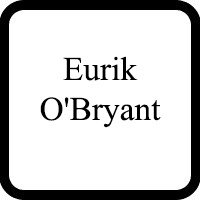Oakley Bankruptcy & Debt Lawyer, California
Sponsored Law Firm
-
 x
x

Click For More Info:
-
Gale, Angelo, Johnson & Pruett, P.C.
1430 Blue Oaks Blvd Suite 250 Roseville, CA 95747» view mapBankruptcy & Debt Law Results Driven Representation
Our mission is to give your real results in multiple practice areas including family law, bankruptcy, and consumer litigation.
800-988-9181
Eurik O'Bryant
✓ VERIFIEDBankruptcy & Debt, Wills & Probate, Intellectual Property, Landlord-Tenant
Eurik is a shareholder at Sekhon & O’Bryant specializing in the practice of contested trust and estate matters, probate administration, commercial l... (more)
Simran Singh Sekhon
Business, Bankruptcy, Trademark, Contract, Wills & Probate
Simran Sekhon is a practicing lawyer in the state of California.
Jim Gerhart Price
Commercial Real Estate, Consumer Rights, Commercial Banks, Collection, Bankruptcy
Status: In Good Standing
Peter Christopher Pappas
Real Estate, DUI-DWI, Bankruptcy, Personal Injury
Status: In Good Standing Licensed: 46 Years
Thomas D. Hathaway
Family Law, Divorce & Family Law, Bankruptcy & Debt, Divorce
Status: In Good Standing Licensed: 31 Years
Michael John Primus
Bankruptcy, Employment Discrimination, Personal Injury, Criminal
Status: In Good Standing
Eric David Erickson
Bankruptcy, Construction, Products Liability, Class Action, Contract
Status: Retired Licensed: 30 Years
Douglas John Hartsough
Power of Attorney, Other, Real Estate, Credit & Debt
Status: In Good Standing Licensed: 36 Years
Donald Lee Cox
Employee Rights, Banking & Finance, Credit & Debt, Medical Malpractice
Status: In Good Standing
 Lauren Pruett Roseville, CA
Lauren Pruett Roseville, CA AboutGale, Angelo, Johnson & Pruett, P.C.
AboutGale, Angelo, Johnson & Pruett, P.C. Practice AreasExpertise
Practice AreasExpertise


